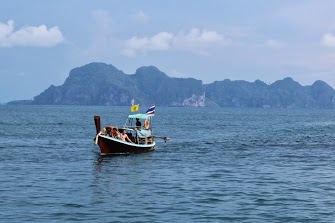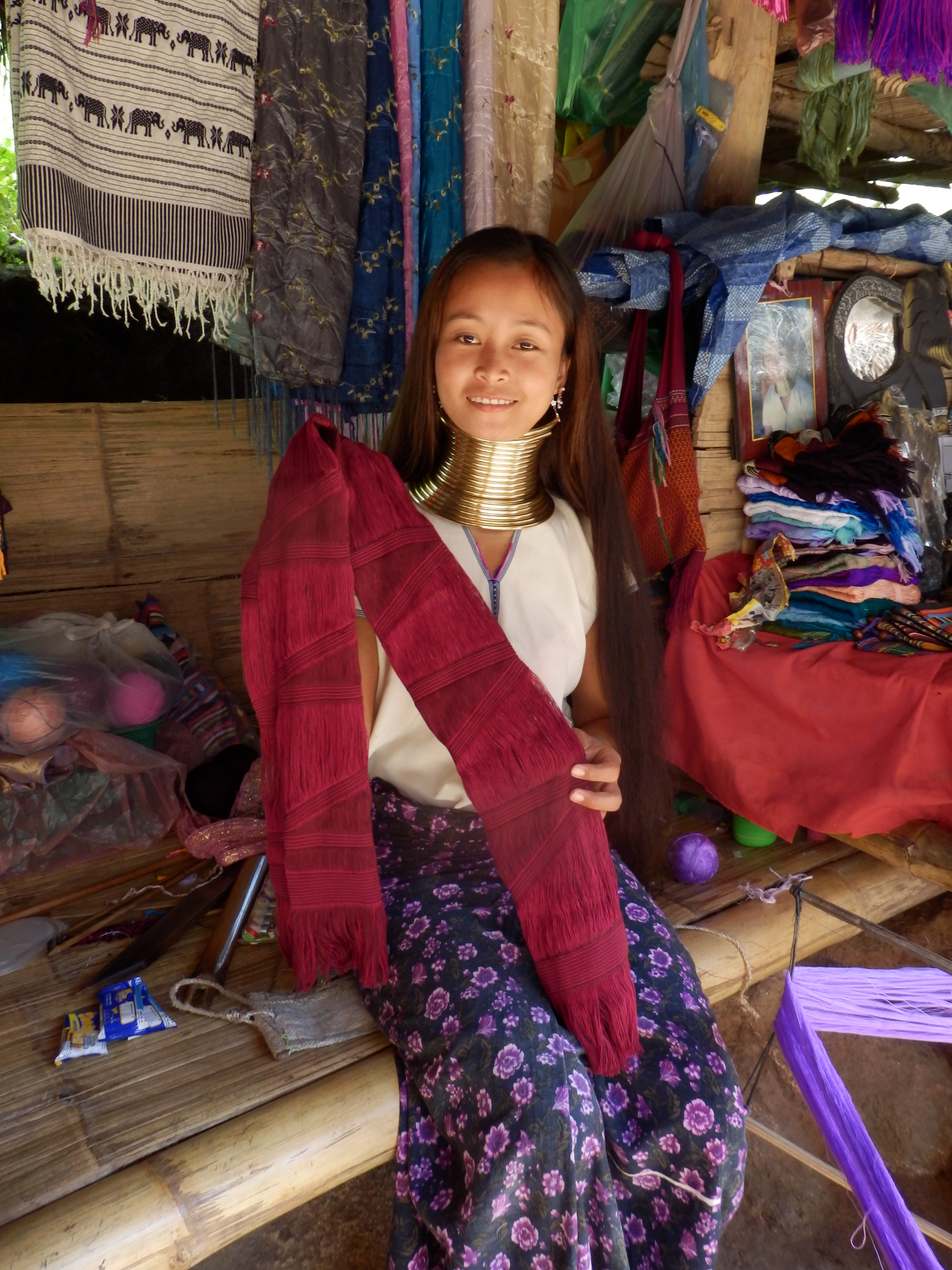The mysterious country of Siam has always fascinated my wife, Patti, and I, and our visit there was not disappointing. Siam became Thailand in 1939, but it remains the intriguing Southeast Asian nation it has been for centuries.
We began in the south of the country, where we discovered beautiful beaches dotted with tall, shady palms and framed by sheer limestone cliffs rising straight out of the sea, suggesting romantic scenes like Bali-Hai, the mystical island in James Michener's "Tales of the South Pacific."
Our resort on the island of Koh Lanta was outstanding by any American standard and prices were very reasonable. One day, for less than $35 each, we boarded an old converted fishing boat that sped us to island after enchanted island for an entire day of snorkeling - equipment and a delicious seafood curry lunch included. The island coral reefs teeming with schools of brightly colored fish in warm, clear water was perfect.
We flew north from the Andaman Sea to Chiang Mai province in the rugged mountains of Northern Thailand where the Thai border forms the Golden Triangle along with Laos and Burma. The "Golden" part refers to the old opium trade and the massive quantities of gold that dealers demanded for their drugs. As recently as 20 years ago there was still a substantial opium trade (and its derivative heroin) in the area, but recent government initiatives have successfully shut down the sinister business.The opium trade destroyed the land as large forested areas were clear-cut to grow the required poppies that only produced for one year, then more land had be cleared.
Today, waterfalls, teak forests, bountiful orchards, rice fields and countless Buddhist temples dot the mountains and valleys. We discovered a surprising number of Christian churches thriving in the area as well. One Buddhist man from a mountain tribe told me half his village had converted to Christianity.
One stop included a visit with a strange mountain tribe of the Karen people, who lived in Burma for centuries but recently migrated to Thailand. They are called the "long-necked" people by other tribes because of the curious practice of placing a series of thick brass rings around the necks of selected (usually very pretty) young girls. The process continues until age 26 when the necks of the women are stretched well above their slender shoulders in a manner that they think greatly enhances their beauty.
The remainder of the men and women in the tribe work the fields. While there was some modern machinery, most of the work is done as it has been for centuries. We visited at rice harvest time, and I asked to help a group beating bundles of recently hand-cut rice stalks with a bamboo stick in order to break loose the kernels of rice, which then fell to the bottom of the bundles. As the precious rice grains accumulated and the rice stalks were removed, other workers tossed the grains into the air allowing the breeze to blow away the husks, or "chaff," not unlike the grain harvests in Biblical times. It was hard, dirty work, but I sensed the farmers I worked alongside were honored by their work and could identify with their ancestors who performed the same tasks for centuries before them.
Back in Bangkok, a bustling city of over 8 million, we experienced the combining of ancient and modern cultures in a captivating way that made us realize that the human race is overcoming not only geographical boundaries but time boundaries as well. Next to a modern five-story mall featuring store after store with the latest Prada, Louis Vuitton and Versace fashions or the latest tech gadget from Sony, one can find a smiling Thai preparing mouth-watering delights at their little street-side stands. They feature such delicacies as quail eggs, pork peanut saté, calamari and noodles, all prepared with the tantalizing flavor of century-old recipes using saffron, cumin, curry and red-hot ground chili.
Further down the street, one finds a modern French bistro or Indian curry café beside an ancient Buddhist temple where people bow on mats to pray before a standing, sitting or reclining image of the Buddha.
However, despite its intrigue, modern Thailand is far from Shangri La. For instance, construction in Thailand is booming. We saw cranes raising high-rise apartments all over Bangkok, but many of the existing complexes remain largely vacant, fueling concerns of a huge real estate bubble. Furthermore, the economy is heavily leveraged, much of it to China, creating an extremely high national debt ratio which portends serious economic woes.
Geographically, many of the rivers that Thais depend upon for potable water, agriculture and transportation are perilously low because of the massive hydroelectric dam projects in upstream China. Our guide showed us acres upon acres of land along the Mekong River, the 10th longest river in the world, that only three years ago were under water.
Politically, the country is embroiled in concerns over their beloved but very aged King Rama IX. When he passes, there is the real possibility of a major constitutional crisis for the passionately freedom-loving Thai people. In fact, the very name Thailand means "Land of the Free."
Finally, there is a very big social problem that festers just beneath the polite Thai culture: the human traffic and sex trade. Desperately poor Thai families, especially in the northern hill tribes, sell their children, many of whom end up in the lucrative prostitution industry in Bangkok.
Sadly, our 11 days in Thailand drew to a close all too quickly, but our lives are far richer for the experience. We barely had time to absorb the romantic islands, the lush mountains, the friendly people with their ancient traditions, the tenets of the Buddhist faith, the great food and the incredible shopping. However, it was perhaps the most enlightening travel experience we've had. Why?
It made us compare that ancient and foreign culture to our own. It gave us a renewed appreciation for the beauty of our own land (the muddy Mekong has nothing on our majestic Tennessee), our individual freedom, our federal republic, our faith and our rich culture. It was great to experience Thailand, but gosh, y'all, it sure is good to be back in Tennessee.
Sa-wah-dee, kop. Good day.
Roger Smith lives in Soddy-Daisy and is the author of "American Spirit: A Story of American Individualism."



